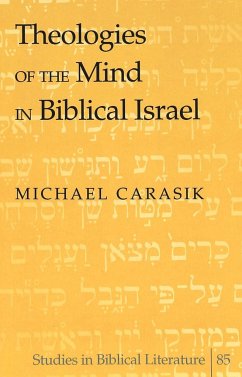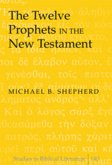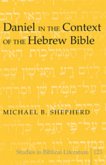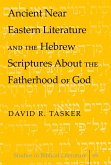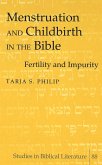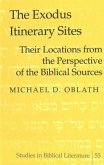Did the Hebrew mind work differently from those of people in the Western tradition of civilization? This long-discredited question still lingers in biblical studies. Theologies of the Mind in Biblical Israel approaches the topic of the Israelite mind from a new direction, exploring how the biblical texts themselves, especially Proverbs and Deuteronomy, describe the working of the mind. It demonstrates that the much-discussed role of memory in the Bible is just one part of a general understanding that in the realm of 'knowledge' God and humanity are rivals.
«Michael Carasik's 'Theologies of the Mind in Biblical Israel' is the first book to systematically explore how the biblical writers understand the workings of the mind. By carefully exploring key biblical terms, as well as such notions as memory and creativity, he brings to life in a clear and articulate fashion what it meant 'to think' from a biblical perspective. This clearly written book offers many sensitive readings of a variety of texts that help to bring out the wide variety of biblical notions concerning the mind. Several of the conclusions, for example, that most biblical writers 'regarded human creative thought as dangerous or evil,' will surprise many readers, but these are all argued in a lucid fashion, using post-biblical literature, anthropological and psychological literature, and apt analogies from everyday life. Given the centrality of the issue explored to almost any biblical passage, this book has the potential to reshape and deepen our understanding of many biblical passages.» (Marc Zvi Brettler, Dora Golding Professor of Biblical Studies, Chair of Department of Near Eastern and Judaic Studies, Brandeis University, Massachusetts)

